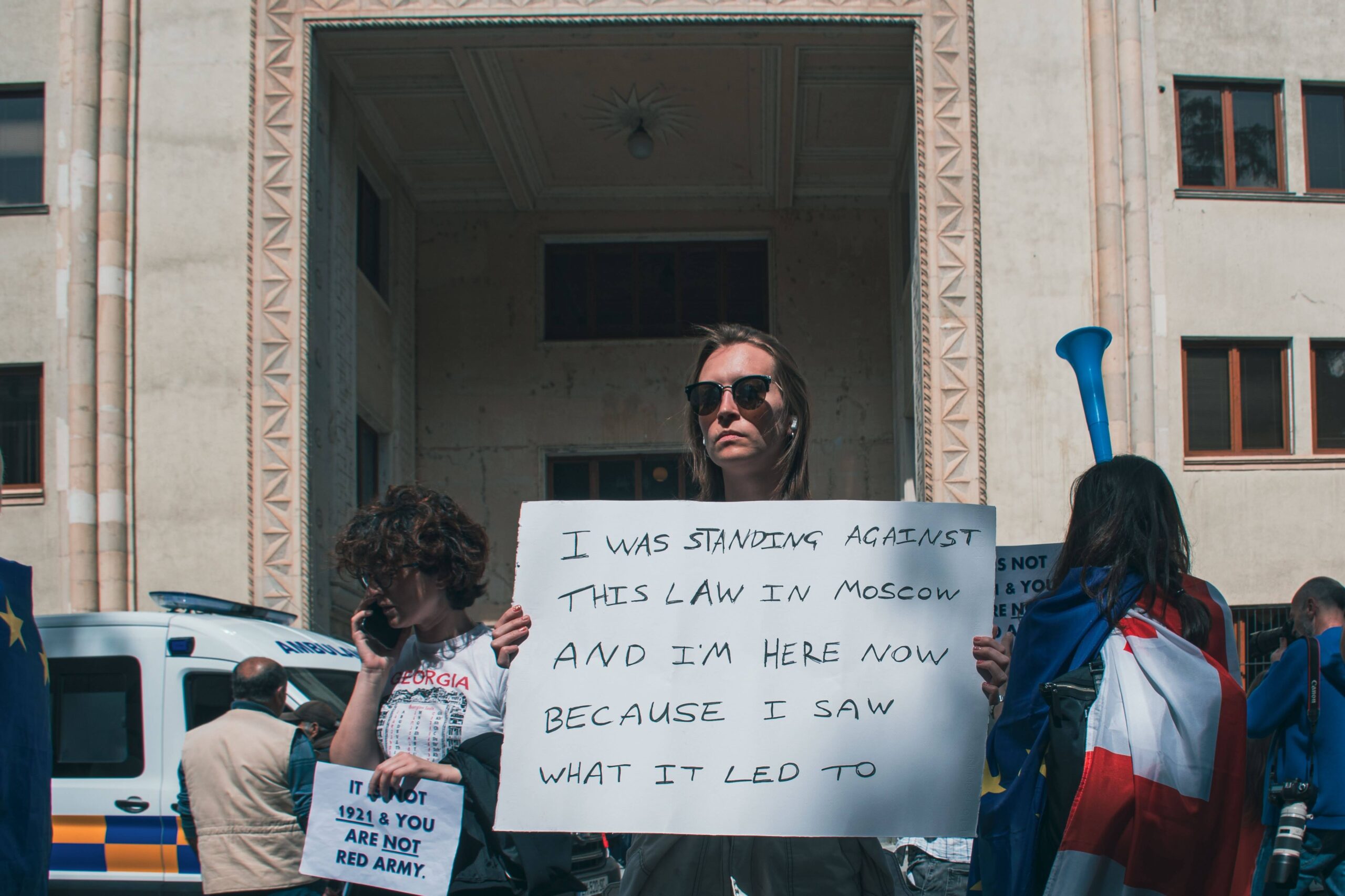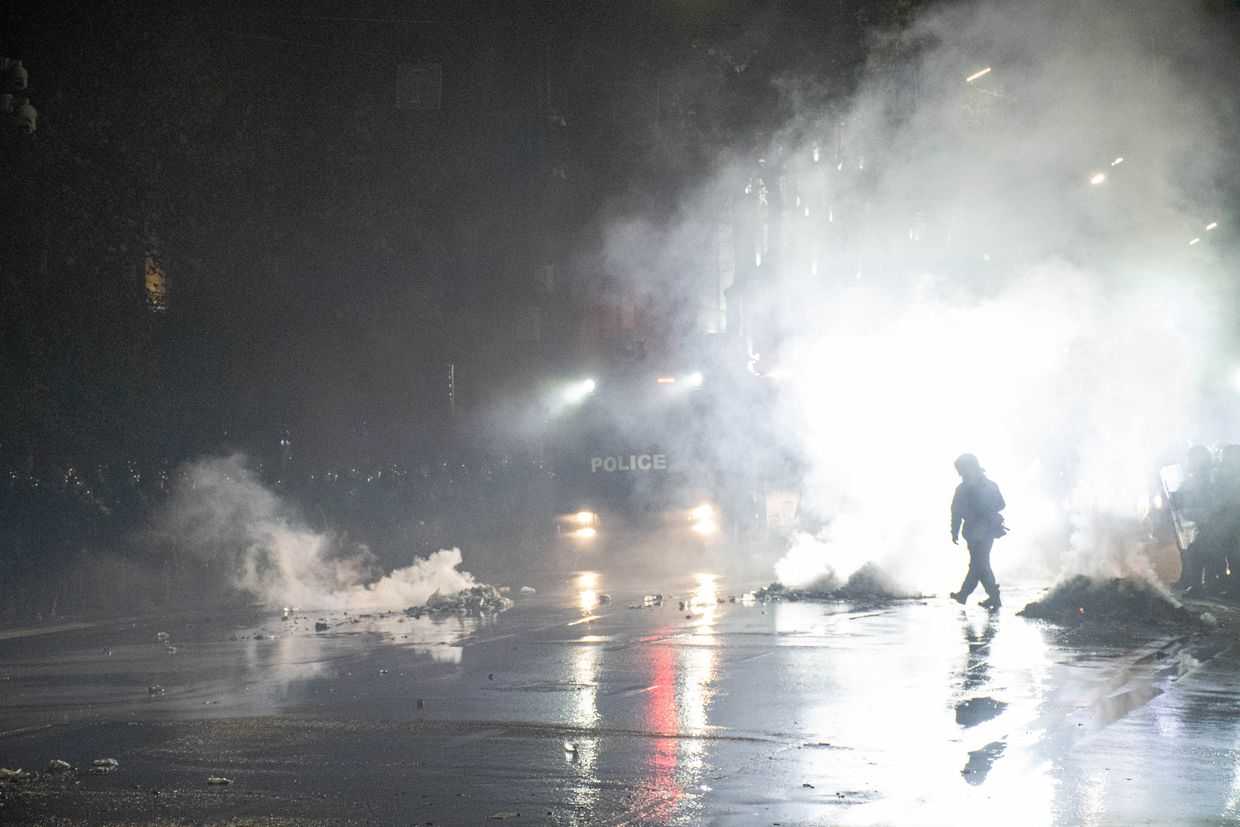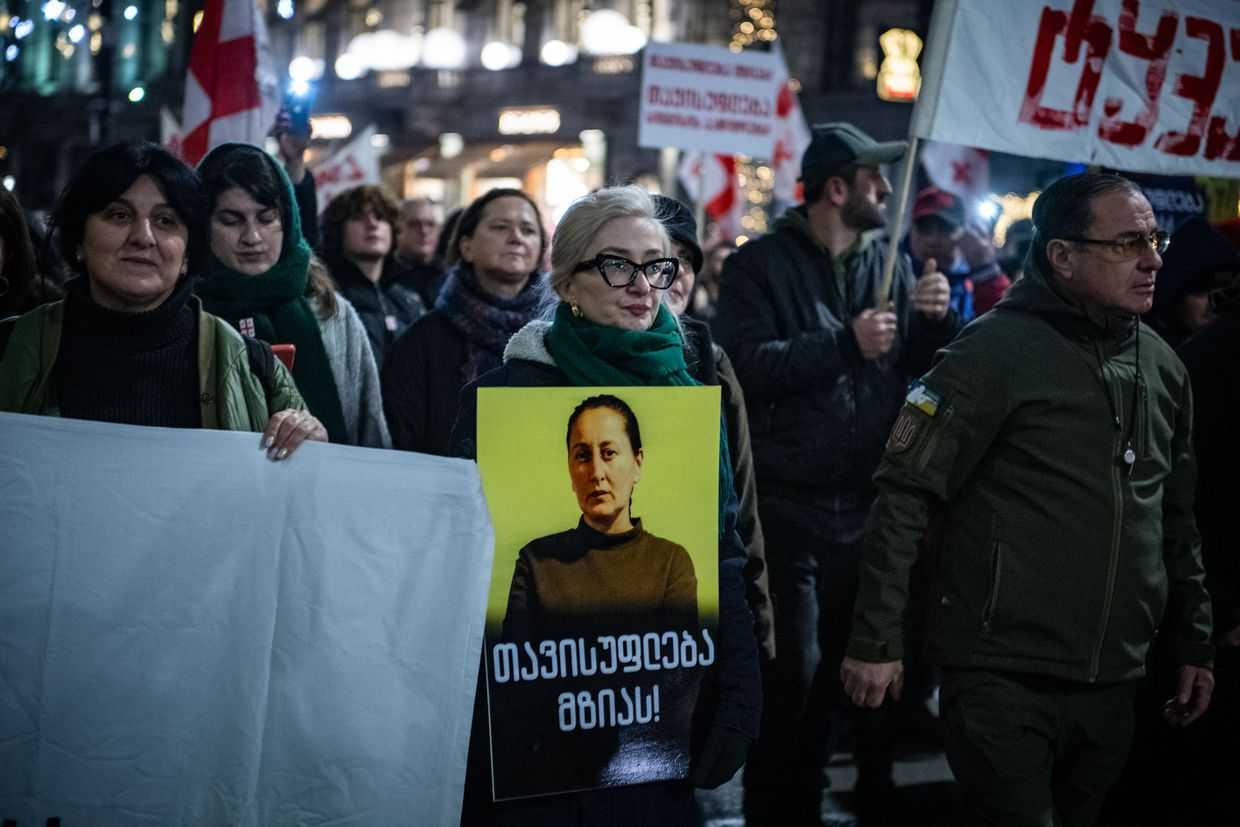Georgian government launches onerous and invasive registration for ‘foreign agent’ NGOs and media

Georgia’s government has launched an online public registry for organisations to register as foreign agents, in a system that critics argue was designed to stigmatise and to push organisations to jump through unrealistic bureaucratic hoops by filling extremely comprehensive forms detailing their funding and assets.
The authorities launched the registration portal on Monday, a week after the Ministry of Justice issued a bylaw establishing a department responsible for registering and monitoring organisations labelled foreign agents.
Georgia’s foreign agent law, officially titled the law on transparency of foreign influence, labels any civil society or media organisation that receives at least 20% of its funding from abroad as ‘carrying out the interests of a foreign power’.
As the law came into force on 1 August, Justice Minister Rati Bregadze issued a decree regulating the operation of the registry. The decree stipulates that applications for self-registration should be submitted to Georgia’s Public Service Hall by 1 September. Applicants would then receive access to the online registration portal to fill out requested forms within ten working days.
The organisations would then be registered as foreign agents within 30 working days of their application.
The registry was met with criticism for its convoluted and exhaustive forms, which some have said served to stigmatise groups critical of the government and to burden them with excessive formalities.
Saba Brachveli, a lawyer at the Tbilisi-based Civil Society Foundation, described the declaration form as displaying the ‘extreme level of the government’s curiosity’.
‘The provided form is by far the most exhaustive questionnaire that any business, organisation, or public official has to fill out’, he told OC Media.
The Justice Minister’s August decree stressed that the ministry was able to inspect non-compliant organisations ‘at any time’ with three working days’ notice.
Organisations that refuse to comply with the law will be subject to a fine of ₾25,000 ($9,200), and forcefully registered by the government. Failure to meet financial declaration obligations after being forcibly registered and labelled as a group ‘promoting the interests of a foreign power’ would lead to ₾10,000 ($3,700) fines.
Brachveli argued that Bregadze’s decree ‘mainly repeated the text’ of the foreign agent law while failing to clarify the procedures, scope, and the application of the law to the organisations.
‘Some organisations still have no idea whether or not they fall under the scope of the law’, he said.
Utility bills, snacks, and individual donors
The foreign agent registration form was criticised for demanding an exhaustive list of expenses, revenue sources, and assets owned by organisations applying for registration.
Registering organisations requires providing a financial declaration for 2023, and then again every January. Applicants are required to indicate whether the source of each entry in the declaration comes from a ‘foreign power’.
Applicants are also expected to detail the types, purposes, and amounts of monetary or non-monetary revenues at their disposal — such as credit, donations, gifts, and grants — as well as the market value of each movable and immovable asset received.
These include non-financial assets like buildings, constructions in progress, machinery, equipment, inventory, vehicles, cultivated assets, licences, material services, raw materials and supplies, goods purchased for resale, and spare parts.
The forms stress that organisations must also provide identification documents and details of individual donors.
An applicant must provide cadastral codes, addresses, area measurements, and other related details for immovable properties. For movable objects, the applicant must specify the type, producer, quantity, and other details. In both instances, the instructions on details conclude with ‘and so on’, without any additional clarification.
One form requests financial details, including credit details, income, all payable accounts, and expenditures for salaries, premiums, bonuses, local and international business trips, utilities, stationery, office equipment and upkeep costs, office furniture, renovation costs, leasing prices, and details of leased spaces, meal expenses, banking services, printing, and all forms of advertisement and promotional merchandise.
It also requires information on all liquid assets, including cash on hand and bank balances, various receivables, prepaid expenses (including taxes and rent), inventory, details of short-term and long-term investments and loans, accrued interest and dividends receivables, membership fees or one-time contributions, non-financial assets such as machinery, equipment, constructions in progress, depreciated assets, non-produced assets, other material reserves, and financial obligations including taxes and social contributions.
Declared expenses should include those spent on events, consultation, notary fees, interpretation and translation services, audit and security services, transportation costs, and ‘other assets and service’ fees.
An applicant is mandated to submit information on low-cost accessories purchased, such as ‘t-shirts, hats, flags, etc.’, charity work, insurance services, and other details, without minimum thresholds.
An imminent standoff
The foreign agent law’s reintroduction earlier this year spurred tens of thousands of Georgians to protest on an almost daily basis throughout parliament’s discussions of the bill.
The law was adopted in early June, and came into effect on 1 August. Critics of the law fear that the ruling Georgian Dream party would weaponise it against election monitoring groups ahead of October’s parliamentary elections.
The legislation is also feared to impact independent media that receive funding from Western sources, which often ensures that they can remain free from local political and business group influences.
The law was met with fierce criticism and condemnation from the West, with the US most recently cutting financial assistance to Georgia citing its anti-Western rhetoric and anti-democratic actions.
Washington has also hit ‘dozens’ of Georgian nationals with travel sanctions for their role in ‘undermining Georgia’s democracy’ and crackdown on foreign agent law protesters.

The EU has also stated that Georgia’s accession negotiations with the bloc have been put on hold, in addition to suspending defence aid to Georgia.
The law was dubbed the ‘Russian law’ by protesters in 2023 due to its similarity to Russian legislation that was used to crush civil society and independent media in Russia.
Fears of experiencing a ‘Russian scenario’ were heightened by Georgian Dream’s rhetoric, which labelled government critics ‘agents’ and ‘spies’ even before the bill was introduced. Earlier in August, pro-government TV channel PosTV singled out independent journalists and experts critical of the government as ‘representatives of an NGO promoting the interests of foreign powers’.
The ruling party has also labelled President Salome Zourabichvili an ‘agent of foreign influence’ for her opposition to their policies, including the foreign agent law.
‘The only voice she represents is that of a respective foreign power — the Global Party of War’, said Prime Minister Irakli Kobakhidze of Zourabichvili in April, referring to a conspiracy theory the ruling party propagates of a shadowy force seeking to push Georgia to open a second front against Russia in its invasion of Ukraine.
The Civil Society Foundation’s Saba Brachveli stressed civil society organisations will continue to ‘exhaust all possible legal avenues’ to annul the foreign agent law, arguing that the launch of the registration put off organisations from registering.
‘Filling out these forms requires dedicating and diverting much of the time, energy, and resources of an organisation from its everyday activities to the sole mission of filling them out’, he said.
‘Such organisations now have to choose between continuing to help other people and fighting against the law, or halting their operations to fill these forms’.
The launch of the database and its registration portal coincided with lawsuits submitted by President Zourabichvili, civil society groups, and the opposition against the law at Georgia’s Constitutional Court.
While the court has yet to announce when the hearings will take place, its chair, Merab Turava, stated in late July that they might need up to a month to review the case.









